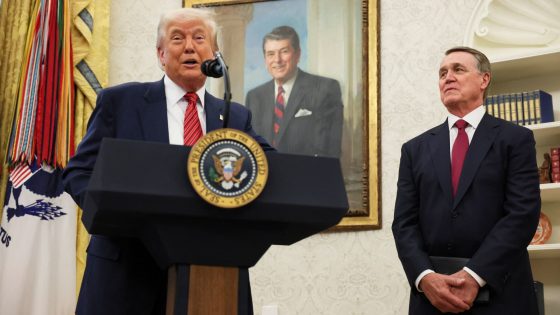In a significant move for U.S.-China relations, President Donald Trump reaffirmed his stance on tariffs, stating he would not lower the current 145% tariffs on China. During a swearing-in ceremony for the new U.S. ambassador to China, David Perdue, on May 7, 2025, Trump emphasized his commitment to these import duties, despite the ongoing trade tensions.
- Trump refuses to lower tariffs on China
- David Perdue sworn in as ambassador
- Treasury Secretary to meet Chinese counterpart
- China opposes U.S. tariff increases
- Trump claims U.S. trade losses have stopped
- Breaking news; updates expected soon
When questioned about the possibility of easing tariffs to facilitate negotiations, Trump responded with a firm “no.” This declaration comes just days before U.S. Treasury Secretary Scott Bessent is set to meet with his Chinese counterpart in Switzerland to discuss crucial trade and economic issues. China has expressed its strong opposition to the tariff hikes as the talks approach.
This raises an important question: How will these tariffs influence the upcoming discussions in Switzerland? Trump’s assertion that the U.S. is no longer losing a trillion dollars a year suggests he believes the current strategy is effective. Key points to consider include:
- The potential for escalating tensions if negotiations fail.
- The impact of tariffs on American consumers and businesses.
- The long-term strategy of the U.S. in global trade.
As negotiations unfold, it is crucial for Americans to stay informed about how these developments may affect the economy and future trade agreements.
































